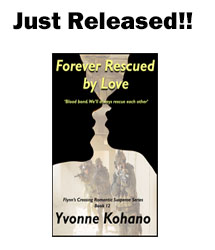I have become (some might say) OBSESSED about self-doubt recently. I’m not talking about my own (though it can raise its ugly little head at any moment) but rather how we can learn to manage it.
 Yes, I said manage. We can’t overcome it, because it never completely leaves us. If we think we’ve overcome it completely, we’ll be sideswiped by the nasty thing when we’re least capable of fighting it. People who say they never feel any self-doubt are fooling themselves (or high on the scale of sociopathy).
Yes, I said manage. We can’t overcome it, because it never completely leaves us. If we think we’ve overcome it completely, we’ll be sideswiped by the nasty thing when we’re least capable of fighting it. People who say they never feel any self-doubt are fooling themselves (or high on the scale of sociopathy).
Self-doubt has its roots in places so deep within us, we can’t see the bottom of the pit. Expected to be perfect as a child? Told whatever you did was never good enough? Berated as too (fill in the blank) and unworthy of attention?
This is all fine for psych-speak. I’m not interested in that. No, the tidbit I’m worrying like the squirrel in my backyard re-burying one of my flower bulbs is FEAR OF FAILING YOURSELF (FOFY for short).
A commonly cited question these days is, “What would you do if you knew you couldn’t fail?” The response that fills the majority of creatives when they hear this is – fear. We can’t fathom the idea of NOT failing, and that’s not good. It’s FOFY.
 We can fail our loved ones, and they’ll forgive us (mostly). We can fail our bosses on a project, and they’ll be disappointed we couldn’t do the un-doable (mostly). We can fail our friends, and they’ll tease us about our shortcomings but forgive us (mostly).
We can fail our loved ones, and they’ll forgive us (mostly). We can fail our bosses on a project, and they’ll be disappointed we couldn’t do the un-doable (mostly). We can fail our friends, and they’ll tease us about our shortcomings but forgive us (mostly).
But failing OURSELVES??? That breaks us into tiny little pieces. We can’t escape OURSELVES. No matter where we go, we’re still with US. That fear of failing yourself holds you back when opportunity knocks, or when you must take a substantial risk to earn a sizable reward. FOFY allows our doubt to lose the race to confidence.
How can we cope with this? Let’s look at what others do for us when we fail to act as they expect:
The Friends: Your quirk of always being late is funny and expected, to the point that they tell you to show up ten minutes earlier than necessary. You know this, and come later anyway, and everyone laughs. Humor and appreciation for your quirky friendship is enough to make this okay.
The Bosses: They asked you to do the impossible. You couldn’t, and that disappointed them, because you were their last best hope. At the same time, they admire you for trying. Respect and trust that you would try your hardest, while not saving the day in this case, still proves you worked at it.
The Family: They’re blood or pseudo-blood. They love you no matter what (I hope). If you’re good to them and honor them, that love will be unconditional.
With all this in mind, why can’t we treat ourselves with the same caring? Fear of failing ourselves can be put in its place – recognition that it’s there but realization that we can’t let it rule our lives. Give the monster a joking name (like Toad the Troll) and a face (draw one!) It loses its power over us when we make it silly.

Our bosses respect our hard work and trust that we did our best. If we’re trying at whatever we’re afraid we’ll fail, we’ll learn something. Sometimes we learn more from our failures than our successes.
Our family gives us unconditional love. Unconditional. ‘Nuf said.
Why can’t we afford ourselves the same caring rights?
As you can tell, this is a hot button topic for me. What questions do you have about self-doubt and FOFY? I’d love to hear your thoughts so I can explore them too.


2 Comments
Deborah A Lucas
November 4, 2017Love love love this newsletter, but I have one question (well, maybe more than one).
How about recognizing self-doubt occasionally as a friend, one who has our best interest at heart? My “kibitzer” sometimes tells me to not rush into something, ask more questions, get someone else’s advice, find a mentor that can help.
Much of the time, my “kibitzer” is just echoing critical voices from my childhood, like you have outlined so well. That voice I really do need to manage. Any suggestions? Self talk? Diversion? Confrontation? Is it possible to just ignore a voice like that? Or do we need to listen first before we can discharge it?
One more question…Is your critical voice male or female…or both? I think mine is definitely my dad’s voice. As you can tell, this is also a big issue for me. Thanks for starting the discussion.
Yvonne Kohano
November 4, 2017Hi Deborah!
So happy you enjoy the newsletters!
I think when you become comfortable listening to the ‘kibitzer’, you’ll be able to tell when it’s telling you something as a warning versus a barrier. For example, if you sat down for coffee with two friends, and they each had a different opinion about what you should ‘do’ in a given situation, how do you decide which one is giving you better advice? When do you say, “Thanks for your input. I appreciate that you’ve given me a different perspective to consider.” And when do you ignore the list of should’s someone else has for you?
The way I cope with self-doubt is to have a frank discussion with myself (sometimes out loud!) I treat myself to the same kind of caring but frank conversation I’d have with a best friend. That usually get me back on track. And if it doesn’t, I call a friend I know will be honest and supportive and will talk me through options.
I don’t think my critical voice HAS a gender – it’s more androgynous. Something to think about, though!
Hope your writing continues to go well!
Yvonne